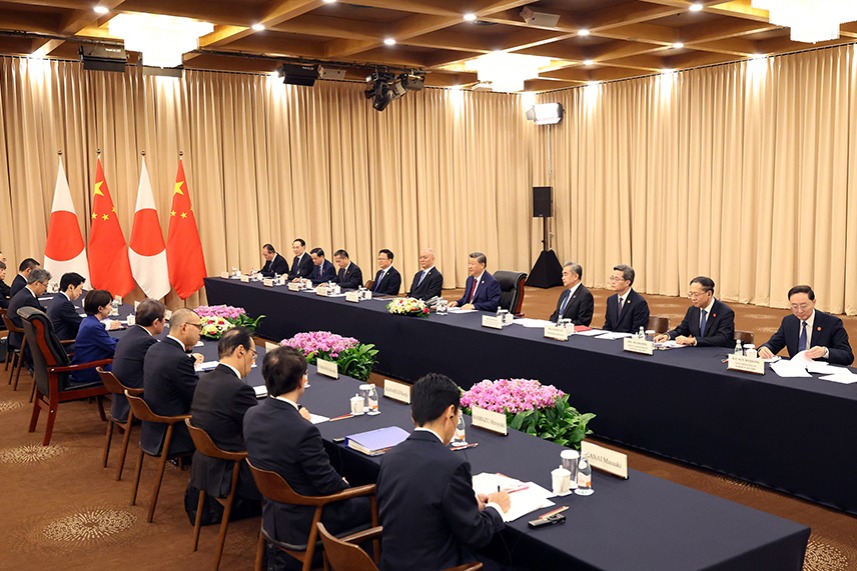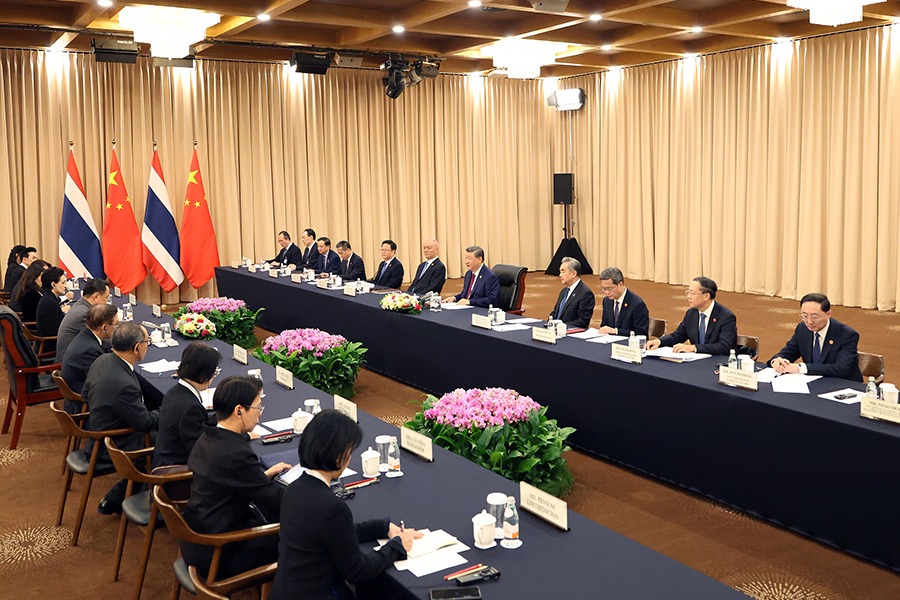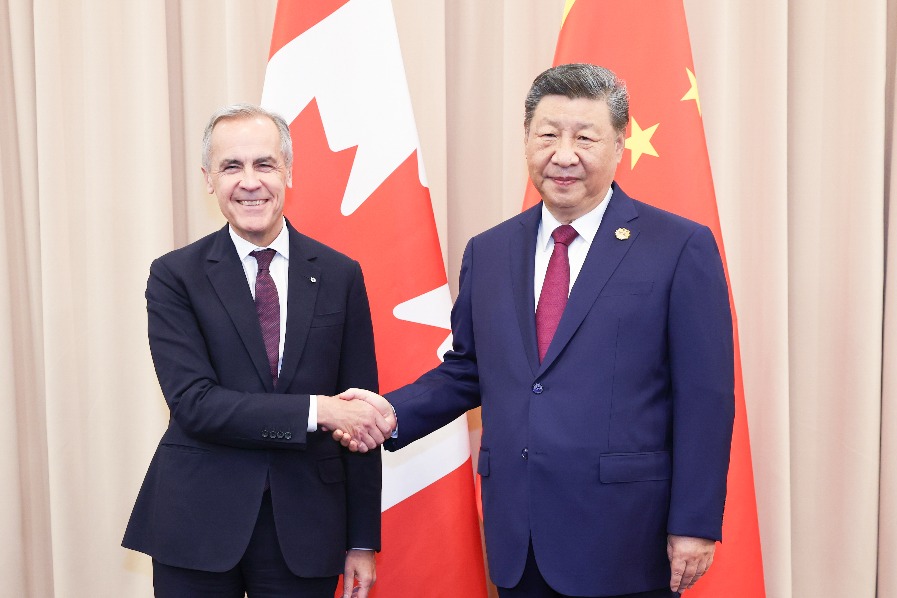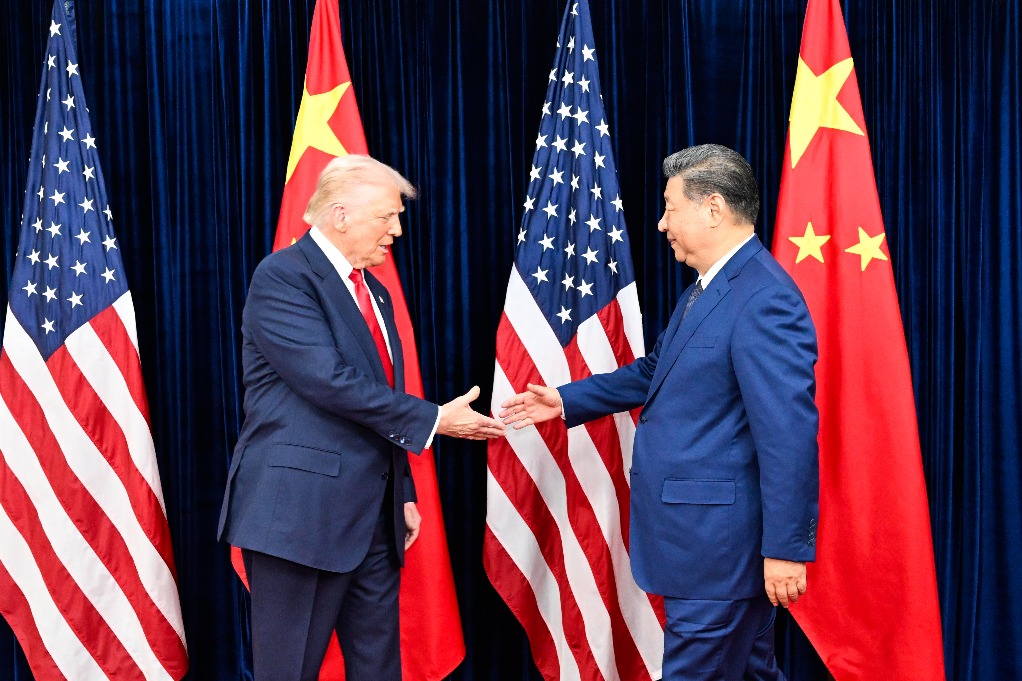Professing their love for piano
By ZHOU WENTING in Shanghai | CHINA DAILY | Updated: 2023-08-18 07:41
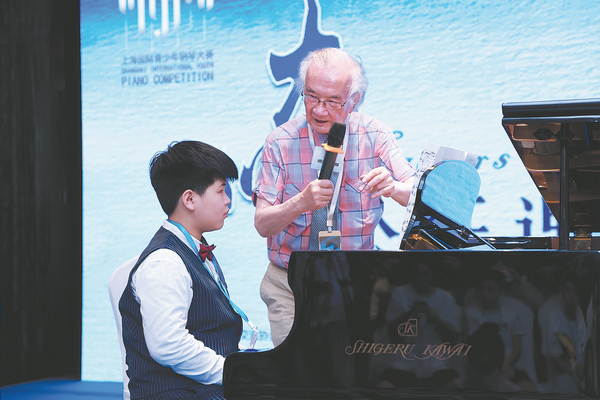
The finals of the 16th Shanghai International Youth Piano Competition, which was held from Aug 10 to 13, drew nearly 1,600 contestants who were selected from tens of thousands of children and adolescents from 36 provincial-level administrative regions all over the country.
According to the organizers, the number of participants taking part in the finals this year was a record high, and this indicates that the love for the keyboard instrument is still going strong in China.
Today, piano lessons are one of the most common forms of extracurricular activities that Chinese parents plan for their children. While some may argue that many of these children don't have a choice in attending these lessons, those taking part in the competition can personally attest to how much they love the experience.
One such person is Wei Changyou from Luohe city, Henan province. The 8-year-old, who started learning the piano at the age of 4, says that her heart "overflows with pleasant feelings" when she listens to beautiful piano pieces.
"The song that I like to play most is Spinning Song by Albert Ellmenreich, a German composer. The melody is as agile and light as flowing water, and I feel like magic when the chords run in between my fingers," she says.
Her mother Meng Hebai says that Changyou only practiced the piano for a few minutes a day when she first started learning, but that gradually became hours once she got captivated by the piano.
Today, Changyou spends an average of two hours practicing the musical instrument on a daily basis. In fact, she even practices on her own accord.
"I can see that whether she feels happy or frustrated, she'll sit down at the piano. It has already become her friend," says Meng.
Piano playing has also helped the girl gain more self-confidence, the mother notes.
Zeng Tanyuanjun from Guangzhou, Guangdong province, is another competitor who shares the same love for the piano.
The 9-year-old describes playing the piano as his favorite part of the day.
His mother Li Qiong says that she has seen how Tanyuanjun has gone from using the piano as a means of gratification, to providing comfort for others.
Two years ago, she recalls, Tanyuanjun fell so ill that he had to be hospitalized for several days. During the period, he asked his parents to bring a piano to the hospital ward so that he could practice and kill time. What transpired was a scene that moved Li.
"People were drawn to the music and formed a circle around him. I felt deeply touched at that moment as the music must have healed many during the hospital stay," she says.
For Wang Xichong, the father of contestant Wang Yukun from Wuhan, Hubei province, the objective of his son learning the piano is not about mastering the instrument, but rather the catharsis it offers.
"I learned how to play piano when I was a child, and for me it was a way to release emotions. I remember that during the days before gaokao (the national college entrance exam), I played a lot because I needed to relieve the pressure I was under," recalls the father.
Deng Zipan, 24, who started learning the piano when he was at kindergarten, shares a similar sentiment. Deng, who currently studies piano at the Rachmaninoff Conservatory of Music in Russia, says practicing is an exercise of perseverance and courage.
"Every time we open a new sheet of music, the journey begins with endurance and pain, and we have to keep encouraging ourselves to take another step forward. But after we've mastered the piece and start dealing with the details, it becomes a pleasure, and we can fully immerse ourselves in the music," says the Wuhan native.
Chu Wanghua, a prestigious composer and pianist, and chairman of the judging committee of this year's national finals, says that he could clearly feel the children's love for the piano through the music they were playing. He points out that he was particularly impressed by a contestant playing a piece by Wolfgang Mozart.
"It was amazing to see how a child of today was able to express Western classical music from centuries ago so well with their little fingers. The child really immersed their heart, hands and mind in the music," says Chu.
According to Chu, there are presently at least 30 million young piano learners in the country, making it the most popular choice of musical instrument to learn in China since the beginning of this century.
"Many of them may take different career paths after they grow up. But a society makes progresses when its members have improved comprehensive qualities — learning music is one way to achieve this," he says.
zhouwenting@chinadaily.com.cn





